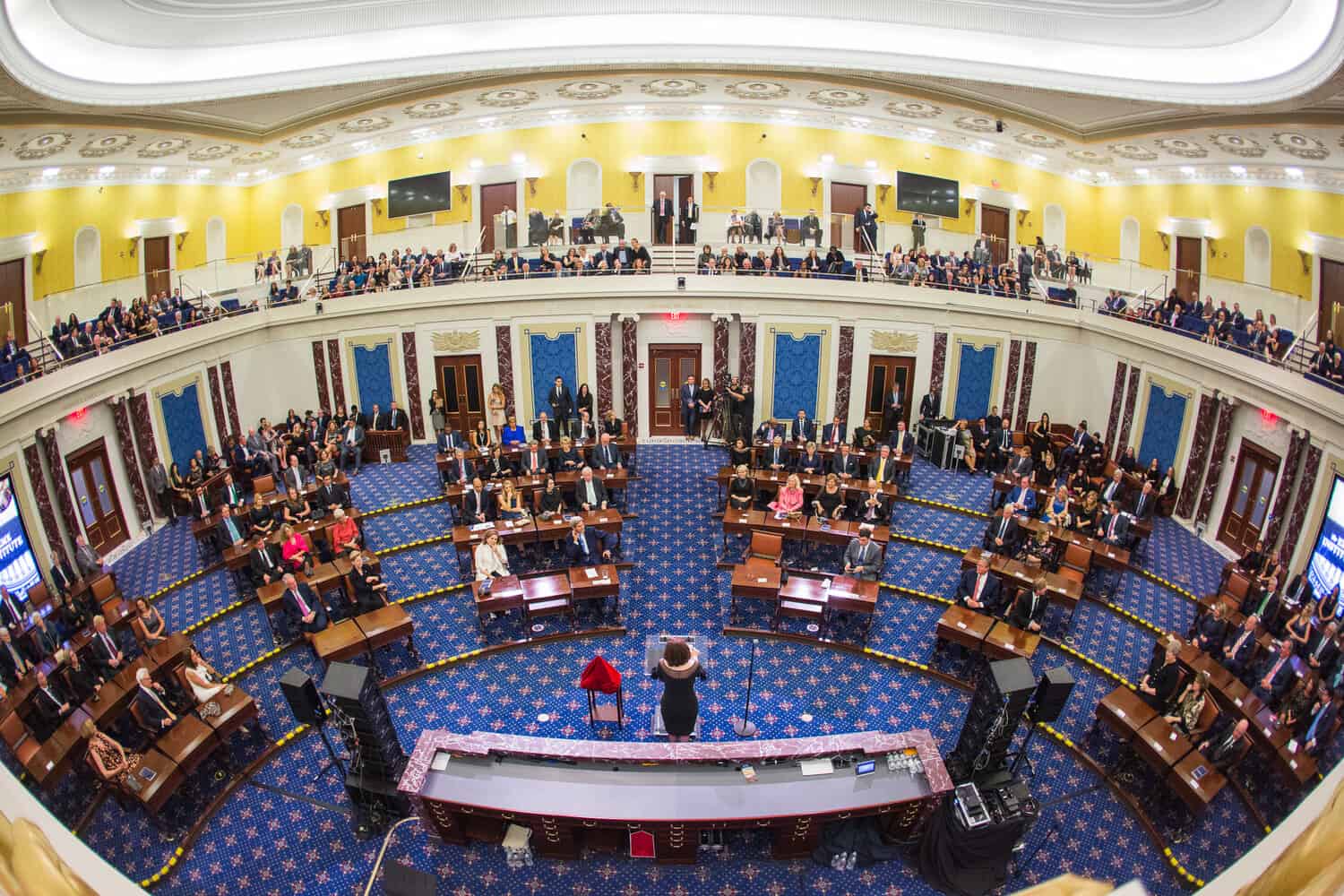
Ajayan Williamson is a student at Harvard Law School.
In today’s news and commentary, a group of law professors file an amicus brief in Trump v. Slaughter; the New York Court of Appeals hears oral arguments about a firing over blog posts; and a Senate committee further delays consideration of Trump’s NLRB nominee.
Last week, a group of law professors filed an amicus brief in Trump v. Slaughter, the case in which the Supreme Court is expected to decide whether to overrule Humphrey’s Executor and invalidate removal protections for independent agencies like the FTC and the NLRB. The professors — a group of experts in administrative law, regulation, and the separation of powers — argue that Congress “has broad discretion” both to assign disputes to administrative agencies and to ensure the independence of those bodies via removal protections. They further argue that the FTC exercised only reporting and adjudicatory functions, not “substantial executive power,” at the time of Humphrey’s Executor; moreover, to the extent that the FTC has gained executive power since then, the brief argues that the Court should respond by severing executive powers rather than invalidating longstanding removal protections.
Meanwhile, on Tuesday, New York’s highest state court heard oral arguments in Sander v. Westchester Reform Temple, a case implicating the scope of New York’s statutory protections for employees. The plaintiff in the case was fired from her job as a Hebrew teacher over blog posts expressing anti-Israel and anti-Zionist views; she claims that her termination violates New York’s prohibition on firing employees for off-work “recreational activities.” Lower courts held that the plaintiff was fired for the content of the blog, thus falling within an exception in the statute. The parties also dispute whether the plaintiff’s job was religious or secular — if it is religious, the “ministerial exception” may allow her to be fired regardless, and the court may not reach the question of whether blogging is protected recreational activity.
Finally, Bloomberg Law reports that yesterday, a Senate Committee cancelled a planned vote on Scott Mayer, one of President Trump’s nominees for the NLRB. Mayer is chief labor counsel at Boeing, and he has faced sharp criticism over Boeing’s handling of a recent 15-week strike in Missouri. The Senate Health, Education, Labor and Pensions (HELP) Committee declined to advance Mayer alongside Trump’s other nominees in October; though the committee was scheduled to vote on him yesterday, a committee spokesperson now says the nomination will be considered “in the near future.” The NLRB has been without a quorum since Trump fired NLRB Member Gwynne Wilcox earlier this year — this latest decision likely means it will take longer to regain that quorum and allow the Board to function again.






Daily News & Commentary
Start your day with our roundup of the latest labor developments. See all
March 3
In today’s news and commentary, Texas dismantles their contracting program for minorities, NextEra settles an ERISA lawsuit, and Chipotle beats an age discrimination suit. Texas Acting Comptroller Kelly Hancock is being sued in state court for allegedly unlawfully dismantling the Historically Underutilized Business (HUB) program, a 1990s initiative signed by former Governor George W. Bush […]
March 2
Block lays off over 4,000 workers; H-1B fee data is revealed.
March 1
The NLRB officially rescinds the Biden-era standard for determining joint-employer status; the DOL proposes a rule that would rescind the Biden-era standard for determining independent contractor status; and Walmart pays $100 million for deceiving delivery drivers regarding wages and tips.
February 27
The Ninth Circuit allows Trump to dismantle certain government unions based on national security concerns; and the DOL set to focus enforcement on firms with “outsized market power.”
February 26
Workplace AI regulations proposed in Michigan; en banc D.C. Circuit hears oral argument in CFPB case; white police officers sue Philadelphia over DEI policy.
February 25
OSHA workplace inspections significantly drop in 2025; the Court denies a petition for certiorari to review a Minnesota law banning mandatory anti-union meetings at work; and the Court declines two petitions to determine whether Air Force service members should receive backpay as a result of religious challenges to the now-revoked COVID-19 vaccine mandate.